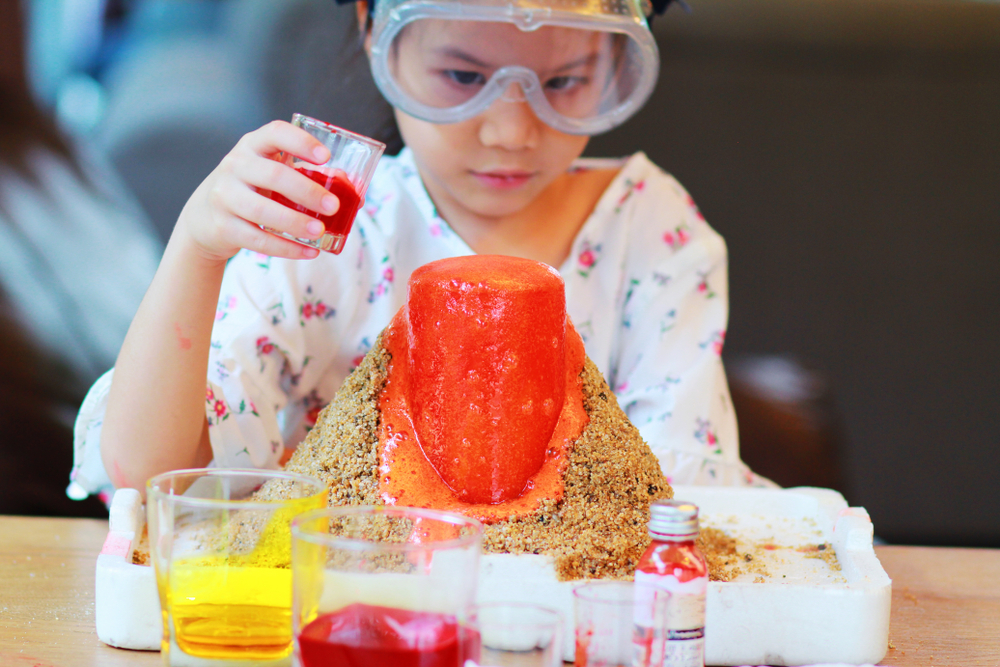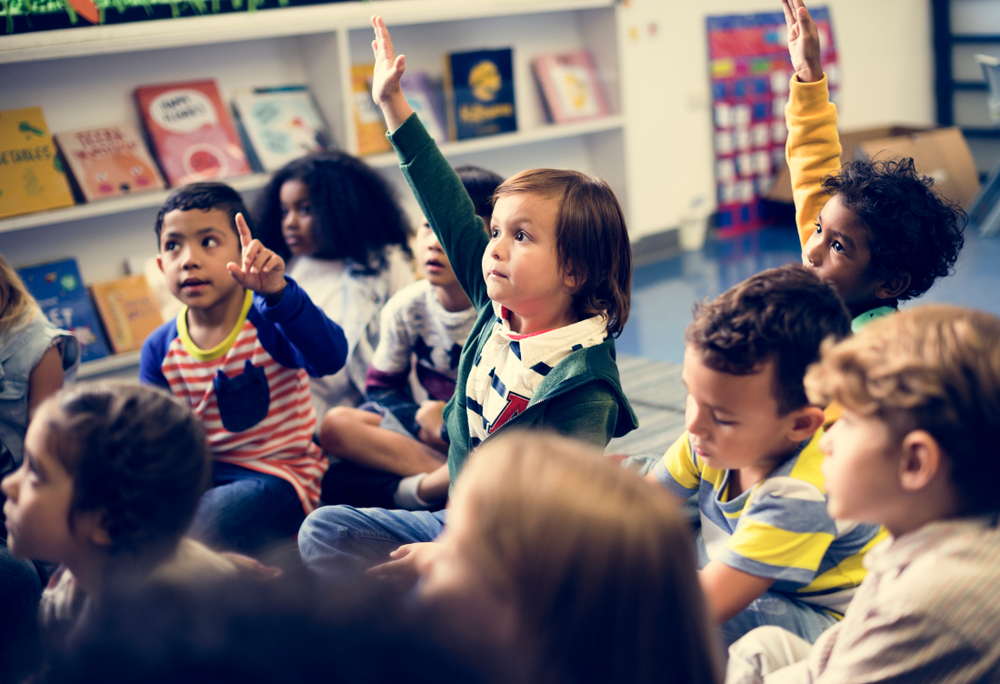Understanding natural resources Science Worksheets for Ages 4-7
4 filtered results
-
From - To
Welcome to our "Understanding Natural Resources" science worksheets page designed for children aged 4-7! Engage your young learners with fun and interactive activities that explore the wonders of nature and sustainability. Our carefully crafted worksheets introduce concepts like land, water, air, and their importance in our daily lives. Through relatable examples and colorful illustrations, children will develop a foundational understanding of natural resources while enhancing essential skills such as critical thinking and creativity. Perfect for classroom use or at-home learning, these resources encourage environmental awareness and stewardship from an early age. Download our worksheets today and inspire a love for the planet!
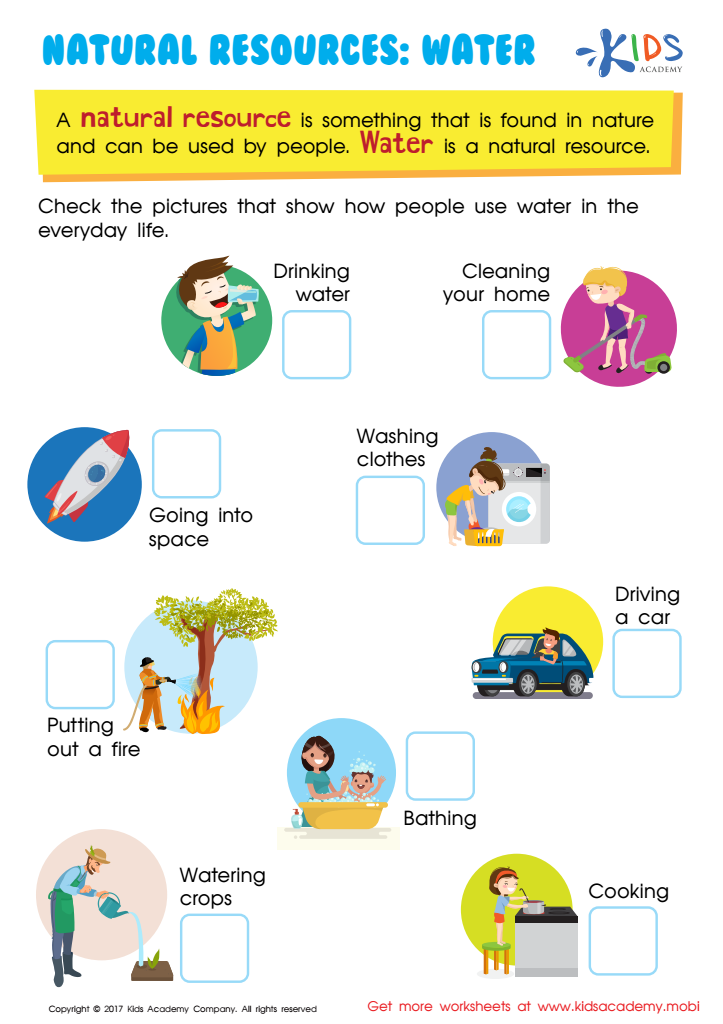

Natural Resources: Water Worksheet
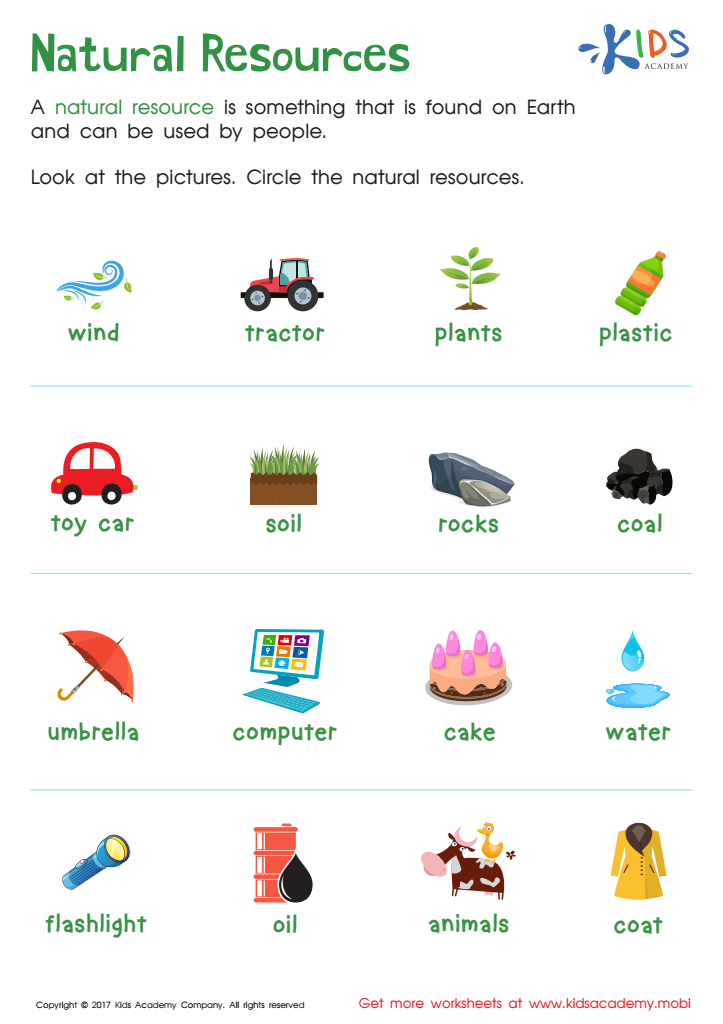

Natural Resources Worksheet
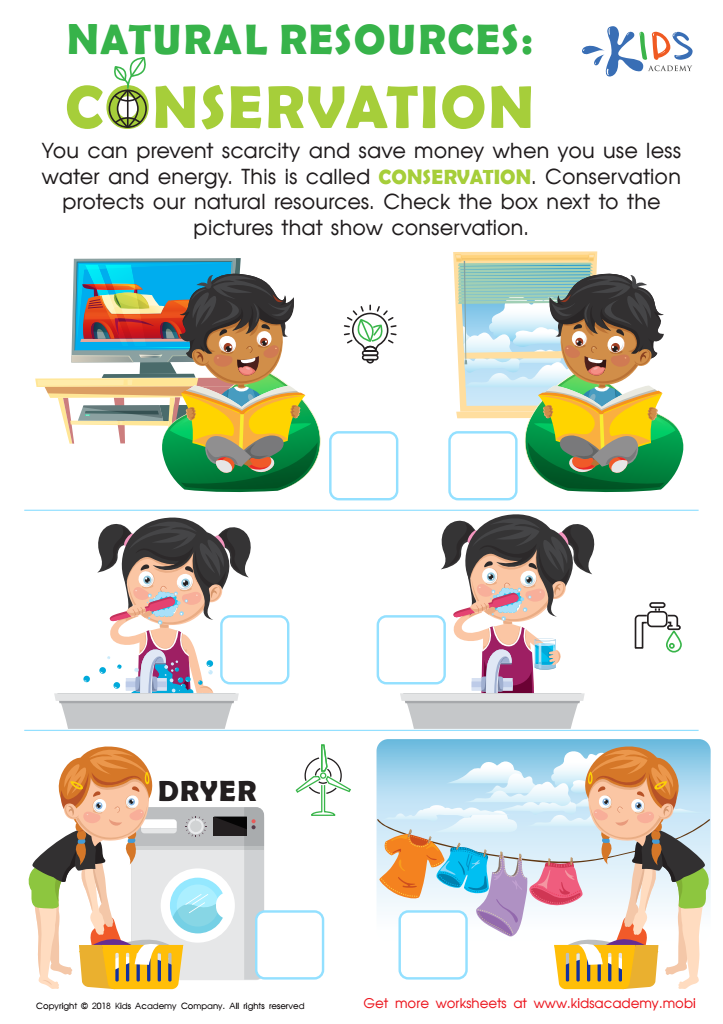

Natural Resources: Conservation Worksheet
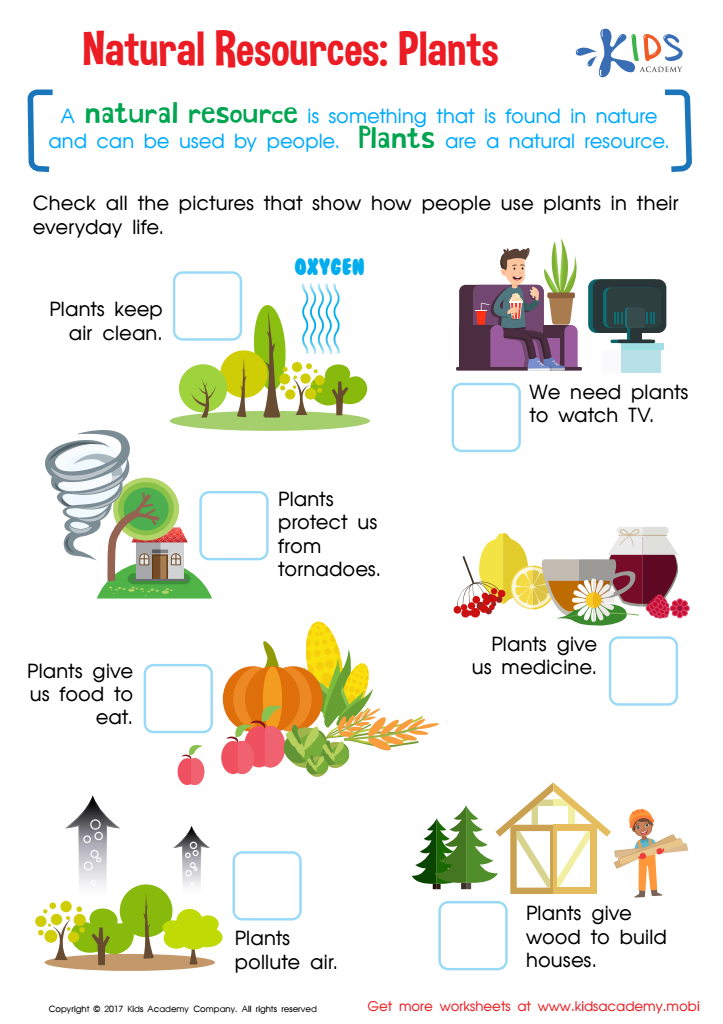

Natural Resources: Plants Worksheet
Understanding natural resources is crucial for young children aged 4-7, as it lays the foundation for environmental awareness and appreciation. At this age, children are naturally curious about the world around them. Introducing them to natural resources, such as water, air, soil, plants, and minerals, encourages exploration and fosters a sense of wonder. Parents and teachers play a pivotal role in nurturing this curiosity, guiding children to recognize the importance of these resources in their daily lives.
Moreover, early environmental education cultivates responsible future citizens. By understanding how to use and conserve natural resources, children develop habits of sustainability that can last a lifetime. They learn the value of teamwork through collaborative activities, such as recycling or gardening, and adopt attitudes of stewardship towards nature.
Additionally, engaging in hands-on activities related to natural resources enhances critical thinking and problem-solving skills, essential competencies for academic success. Parents and teachers should care about this subject as it not only enriches children’s understanding of their surroundings but also empowers them to participate in addressing environmental challenges, ensuring a healthier planet for future generations. Overall, fostering this knowledge encourages respect for nature, enriching both personal and social development in young learners.

 Assign to My Students
Assign to My Students




